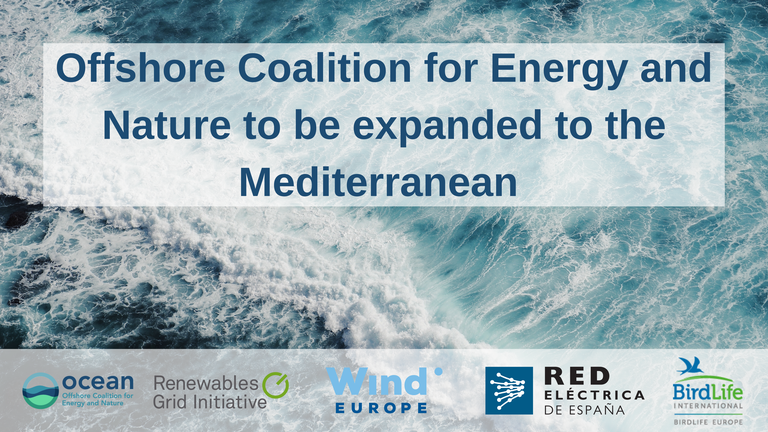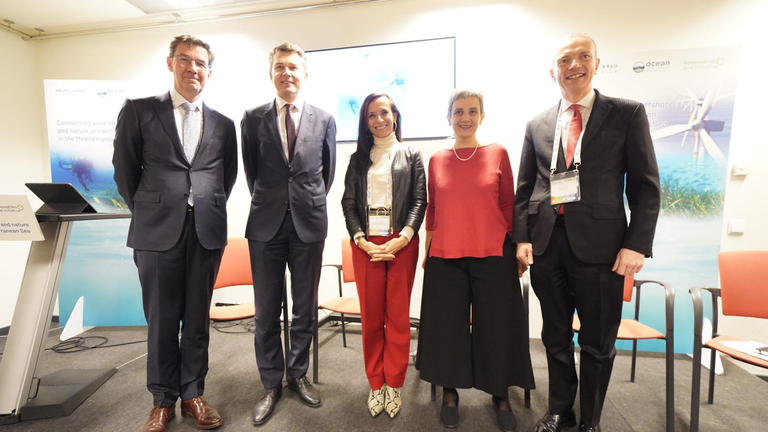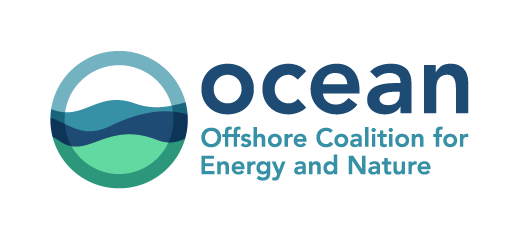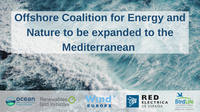Offshore Coalition for Energy and Nature (OCEaN) to be expanded to the Mediterranean

In the context of the current energy crisis, offshore wind energy has been confirmed as key to increase European security of supply and contribute at reaching the 2030 and 2050 climate neutrality targets. The Mediterranean has an important role to play with over 76 GW by 2050. However, expansion, which is at an early stage of development, must be carefully planned and managed as the Mediterranean basin is a biodiversity hotspot under threat.
Since its inception in late 2020, the Offshore Coalition for Energy and Nature (OCEaN) has been working on bringing offshore energy and grid development together with solutions for robust nature protection and restoration in the North and Baltic Seas. Several regional stakeholders have expressed interest and commitment in setting up the Mediterranean branch of OCEaN and during this event this was met with applause from the audience.

Antonella Battaglini, CEO, RGI: "The current energy crisis confirms that we need to massively expand European renewable energy generation, deploy electricity grid infrastructure to enable deep electrification. The Mediterranean due to its rich biodiversity and early stage of offshore developments offers us a unique opportunity to prove that it is possible to build energy infrastructure while protecting and restoring nature. Cross sectoral solutions will decrease European dependencies and deliver sound ecosystems able to sustain economic activities."
Giles Dickson, CEO, WindEurope: "The Mediterranean Sea has huge potential for offshore wind. The EU Commission sees it supporting up to 76 GW by 2050 – most of it floating. It would mean up to €100bn in new investment. And it would make a major contribution to improving energy security in the region. To tap into this potential, countries should introduce clear targets for offshore wind, ensure the relevant permitting decisions are taken efficiently and that they coordinate and collaborate with other countries in the same sea basin. Offshore wind in the Mediterranean also needs to be built out in an environmentally friendly way. To that end, it’s great that the OCEaN Coalition between the offshore wind industry, TSOs, and biodiversity NGOs is now being extended to the Mediterranean. The new 'MED OCEaN' Coalition will help us expand offshore wind and protect natural capital at the same time."
Beatriz Corredor, Chairwoman of Red Eléctrica, has attended the event where she highlighted that "coordination between all stakeholders will be key to make this development as effective and efficient as possible, minimizing the impact both on communities and their biodiversity and ecosystems, through dialogue with the territory". Corredor, also added "to ensure this initiative succeded, we believe the TSO model should be the one to follow. A model where the electricity transmission and system operator, based on its know-how and expertise, is the one to build, operate, and maintain the offshore grid and its connection with mainland. This predominant model in the European Union optimises the deployment of infrastructure to minimise its impact on the marine environment, ensuring neutrality and non-discriminatory access for all players and strengthening the robustness and security of supply of the electricity system. Red Eléctrica is ready to play its part".
David Howell, David Howell is Climate & Energy Advisor, Environmental Governance Unit at SEO/BirdLife: "For SEO/BirdLife it is crucial that the energy transition accelerates in a way that is compatible with the response to another colossal global challenge: that of halting and reversing the loss of biodiversity. 'Nature-positive' spatial planning and sectoral practice have a central role to play, on land and at sea. In the offshore wind sector, close and continuous dialogue between key actors should help to find and promote the right solutions and hence to build and maintain investor and public confidence."

